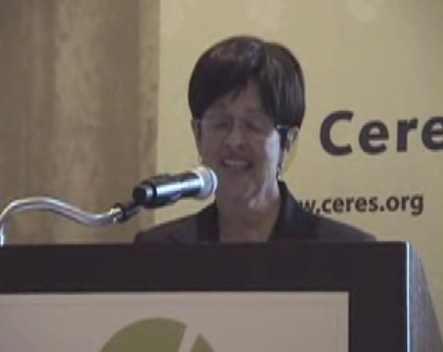
0211
Joan Bavaria was a valued member of the Ethical Markets Media Research Advisory Board. We salute her and her pioneering role in developing social investing. The Joan Bavaria award will keep her memory alive and her influence growing.

Joan Bavaria was a valued member of the Ethical Markets Media Research Advisory Board. We salute her and her pioneering role in developing social investing. The Joan Bavaria award will keep her memory alive and her influence growing.

 Values for Water. World Bank – provided by Planet2025; Week 8 of the Water Tribune in Zaragoza, Spain, sponsored by the World Bank, was kicked-off with these three videos used to stimulate discussions. Hazel Henderson is a featured speaker. Each week of the water expo, participants from around the world joined in debates and dialogues addressing water concerns affecting us globally. (26 min)
Values for Water. World Bank – provided by Planet2025; Week 8 of the Water Tribune in Zaragoza, Spain, sponsored by the World Bank, was kicked-off with these three videos used to stimulate discussions. Hazel Henderson is a featured speaker. Each week of the water expo, participants from around the world joined in debates and dialogues addressing water concerns affecting us globally. (26 min)

Hazel Henderson on Re-Designing Money Systems – provided by Ethical Markets Media; Presented to the launch of the UNEP Green Economy Initiative, Geneva, Dec. 1, 2008, Hazel Henderson explains how re-designing money systems can reduce greenhouse gas emissions and accelerate the growing green economy. The full paper and editorials covering these topics in greater depth are available at www.EthicalMarkets.com. (35 min)

Jack Nicholson’s Car: Don’t tell me it can’t be done! Provided by CBC Retro Bites; This show on clean energy for automobiles from Marketplace TV was aired in 1978!

Growing the Green Economy – Long dismissed by mainstream media, visionary entrepreneurs, environmentalists, scientist and professionals have been creating an economy that thrives in harmony with the earth and social well-being. With insight and clarity, this show looks at the green economy that already exists and is growing by leaps and bounds! (~ 54 minutes)

“Vision of the Future – Hazel Henderson” – provided by PeaceGlobalNet; a broad view of the process of Human Evolution and our present day opportunities. Interview with Hazel Henderson, Futurist – International Speaker – Writer

Strategies for Sustainable Economies – Hazel
Henderson in conversation with James Robertson, British author of
Power, Money and Sex and The Future of Work, about globalization,
out-sourcing, automation and new forms of development.

The Money Fix – Provided by The Money Fix, Hazel Henderson discusses the current ineffective methods of measuring true wealth and the inappropriate use of money, giving examples like the false Nobel Prize in Economics. (~ 9 minutes)
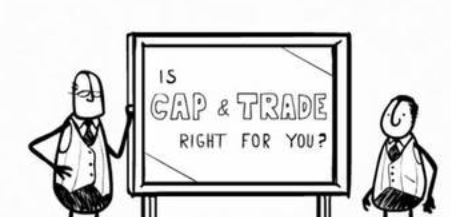
The Story of Cap and Trade provided by The Story of Stuff Project; Intended as a conversation starter, this video, in the style of The Story of Stuff, is a fast-paced, fact-filled, look at the most popular climate solution being discussed. Annie Leonard introduces the people at the heart of this scheme – energy traders and Wall Street financiers – and examines the “devils in the details”: free permits to big polluters, fake offsets and, distractions from what’s really required to tackle the climate crisis.
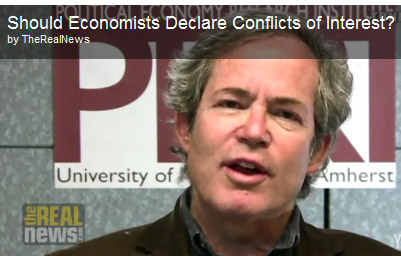
Should Economists Declare Conflicts of Interest? Provided by TheRealNews.com — Gerald Epstein: Study shows many economists who testify or write on finance do not reveal they work for financial institutions.

Suicide Prevention provided by Veterans Views & News; Guest Alexandra Cassidy, suicide prevention coordinator for the Northern Arizona VA Health Care System talks about the government efforts and those we can make to recognize the threat of suicide in our returning veterans. July 2008 (28 min)
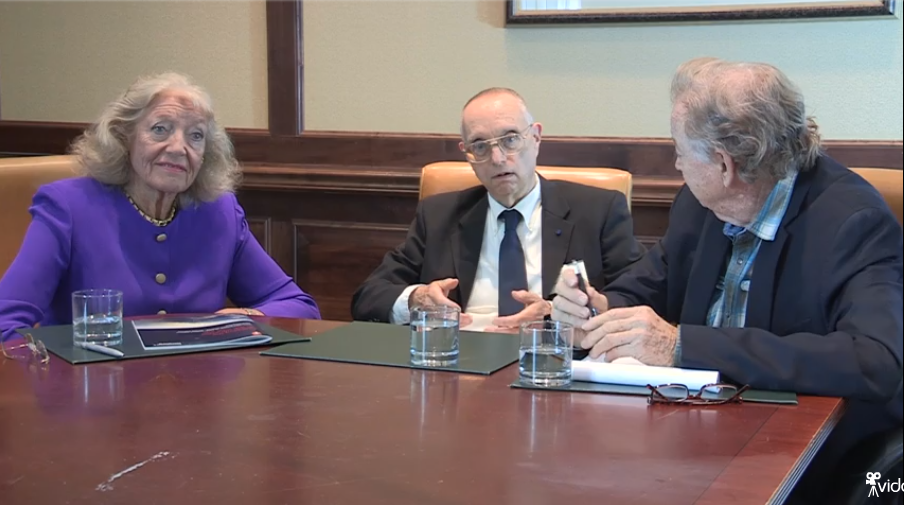
“Investing in Desert Greening” — Discussion with Dennis Bushnell, chief
scientist, NASA Langley; Carl Hodges, founder, Seawater Foundation, and
Hazel Henderson, president, Ethical Markets Media; Ethical Markets
Transforming Finance Series 2014
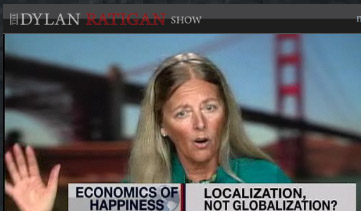
The Economics of Happiness — provided by The Dylan Ratigan Show; Helena Norberg-Hodge of the International Society for Ecology & Culture (ISEC) promotes her film which offers simple policy steps to reduce unemployment and pollution if we can get beyond the economic myths which have us rushing in the wrong direction.

Redefining Cultural Values – Hazel
Henderson and Frank Bracho, former Venezuelan Ambassador to India,
author of Globalization and Petroleum: Salvation or Perdition, discuss
the importance of culture in development.
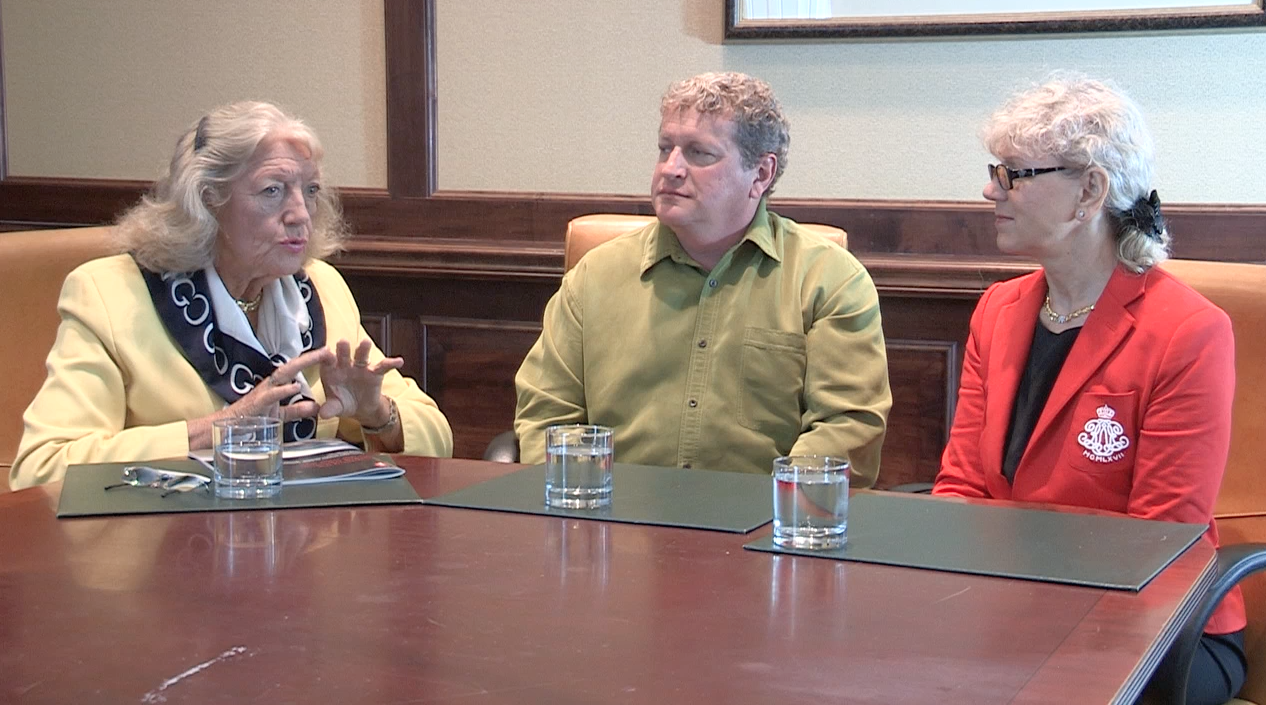
“Making Ethical Investing the New Norm” — Discussion with MARIANA BOZESAN, Founder & General Manager of AQAL Capital GmbH, and GARVIN JABUSCH, cofounder and chief investment officer of Green Alpha ® Advisors, and Hazel Henderson, president, Ethical Markets Media; Ethical Markets
Transforming Finance Series 2014
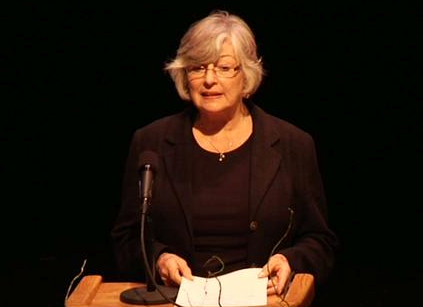
Lynn Woolsey on Peace provided by Praxis Peace Institute and RSF Social Financial; one of many videos from the Economics of Peace Conference in Sonoma, CA, October 2009.

Ecoliteracy and System Thinking – Hazel Henderson and Fritjof Capra, author of The Web of Life, examine the educational movement to teach “ecoliteracy,” an understanding of ecosystems as humanity’s life-support system, and how this leads to systems thinking.

“Rating the Rating Agencies” — Discussion with Claudine Schneider, Congresswoman, US House of Representatives (R-RI), 1980-1990,Lawrence Bloom, FRICS, Co-Founder & Chairman, B.e Energy, and Hazel Henderson, president, Ethical Markets Media; Ethical Markets
Transforming Finance Series 2014

Empowering Women’s Visions – Hazel Henderson and Barbara Marx Hubbard, author of The Hunger of Eve, discuss women as visionary leaders and why they are important for our changing world.
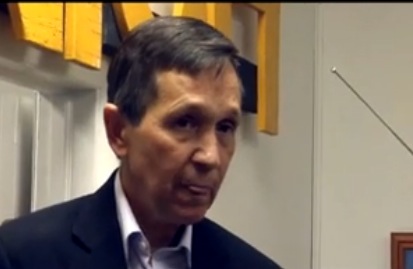
Dennis Kucinich on Monetary Policy provided by American Monetary Institute; Kucinich compliments Steve Zarlenga, author of the Lost Science of Money. November 2008 (3 min)
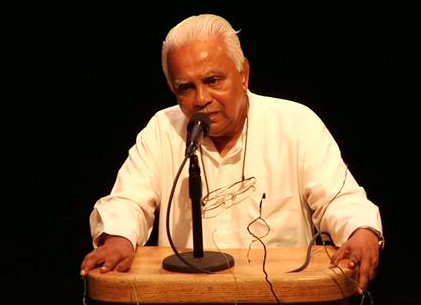
A. T. Ariyaratne on Peace provided by Praxis Peace Institute and RSF Social Financial; one of many videos from the Economics of Peace Conference in Sonoma, CA, October 2009.

Seven Steps to a New Millennium – Hazel Henderson and Barbara Marx Hubbard, author of Human Social Potential, discuss possibilities for humans as we extend our space program.

2008 EthicMark® Finalists – provided by Ethical Markets Media LLC; The World Business Academy will present its 2008 EthicMark® Award for “advertising that uplifts the human spirit and society.” Here are the five advertising campaigns chosen as finalists from the many campaigns nominated from around the world: Cannes Lions Festival – Humanitarian Lion (France); Dove – Evolution; Natura – About Recycling (Brazil); Together We Can (UK); and the WE Campaign – Coming Together to Protect the Planet. (11 min)
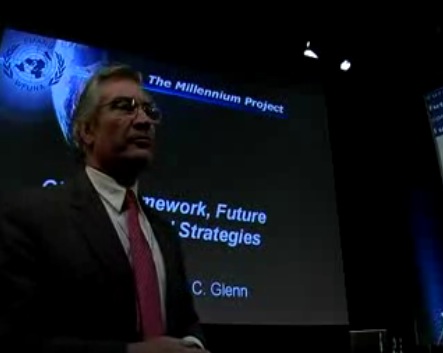
Prof. Jerome Glenn: Global Framework, Future Prospects and Strategies provided by the European Futurist Club; Glenn discusses edgier options for preventing global climate change .(~32 min)
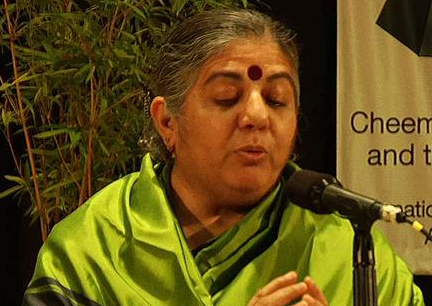
Vandana Shiva on Peace, part 1 provided by Praxis Peace Institute and RSF Social Financial; one of many videos from the Economics of Peace Conference in Sonoma, CA, October 2009.
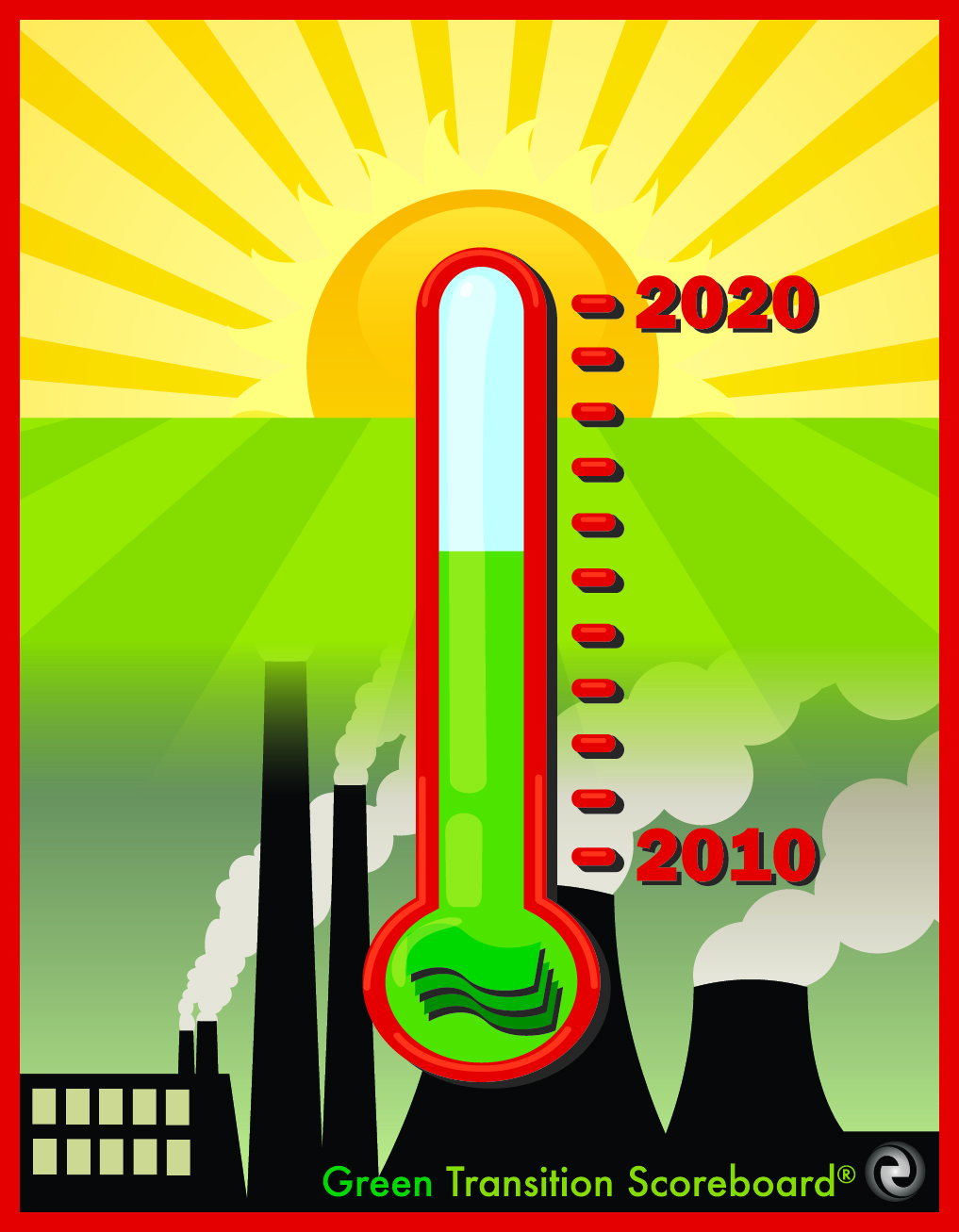
Green Transition Scoreboard(r) Explained – scripted and narrated by Hazel
Henderson, Ethical Markets Media (c) 2014
Dialogues with Hazel Henderson – TV series from St. Augustine and Florida Community College Jacksonville.
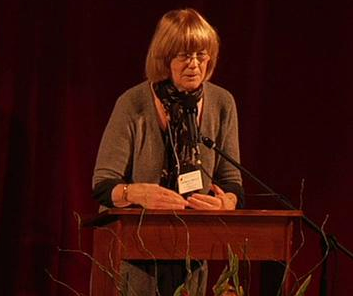
Georgia Kelly on Peace provided by Praxis Peace Institute and RSF Social Financial; one of many videos from the Economics of Peace Conference in Sonoma, CA, October 2009.

Ashok Khosla – Ashok Khosla and Hazel Henderson discuss the debate between the North and the South in how to protect the environment, grow the economy and the very meaning of sustainable development.
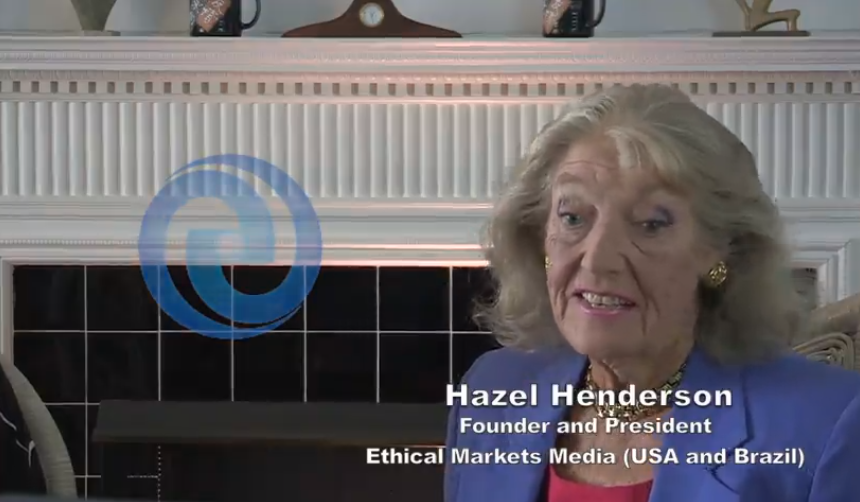
“How Adam Smith and Charles Darwin Got Hijacked” – Discussion with Kim Ann
Curtin, author, CEO, The Wall Street Coach, and Hazel Henderson, president,
Ethical Markets Media; Ethical Markets Transforming Finance Series 2014

The Whole World Was Watching provided by KCTS9; video on the anniversary of World Trade Organization meeting in Seattle, WA, USA in 1999.
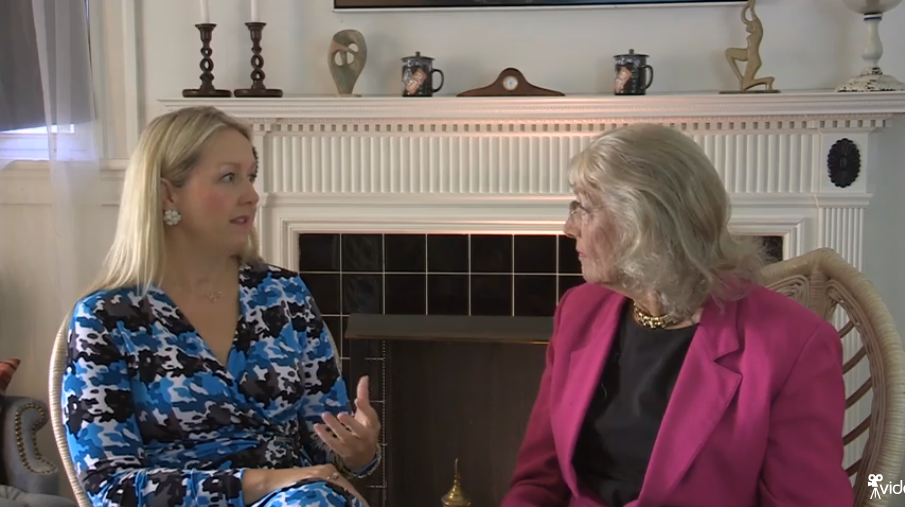
“Transforming Wall Street” – Discussion with Kim Ann Curtin, author, CEO,
The Wall Street Coach, and Hazel Henderson, president, Ethical Markets
Media; Ethical Markets Transforming Finance Series 2014

Eckart Wintzen – Eckart Wintzen and Hazel Henderson discuss greening the global economy as businesses use techniques such as green auditing.
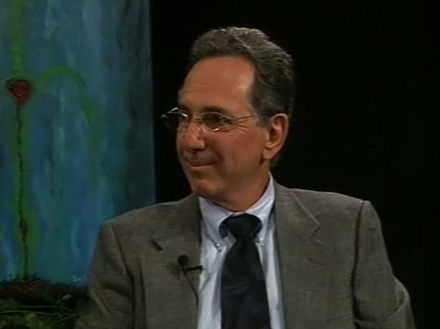
Money Innovation provided by Living an Aligned Life and Dual Currency Systems; Joel Hodroff explains how the Dual Currency System works.
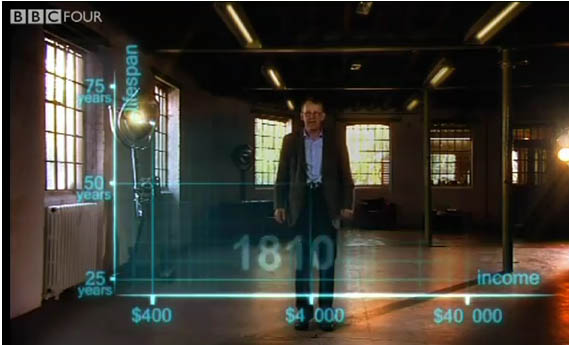
Four Minutes on Human Development — provided by the BBC; Hans Rosling explores stats in an unusual but fascinating way that allows the viewer to watch 200 countries develop over the last 200 years in just four minutes. He takes viewers through the Industrial Revolution, Spanish flu, two world wars and the HIV epidemic in Africa as he covers life expectancy and wealth using 120,00 numbers in his ongoing “Joy of Stats” project. The experience begins in 1810 and shows viewers exactly how different the world is compared to what we imagine it to be. (John Size, Dailybrew.com)

William Irwin Thompson – The Changing American Dream with William Irwin Thompson and Hazel Henderson.
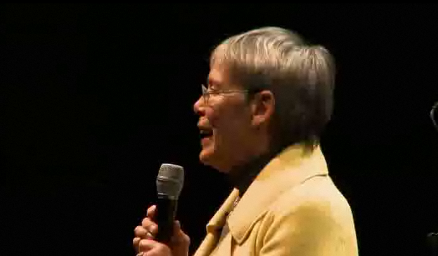
Re-Inventing Money provided by Zeitfilm.de; Dr. Margrit Kennedy makes the case for complementary currencies.

Elisabet Sahtouris Part 3 – Elisabet Sahtouris, evolution biologist, author of GAIA: The Human Journey from Chaos to Cosmos, Continues the conversation with Hazel Henderson discussing the planet as a living system as in the Gaia Theory: the whole biosphere is one interactive living system of which humans are a part.
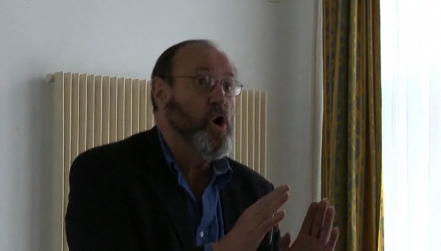
Money for the Future provided by Zeitfilm.de; Bernard Lietaer offers systemic solutions for the financial crises.
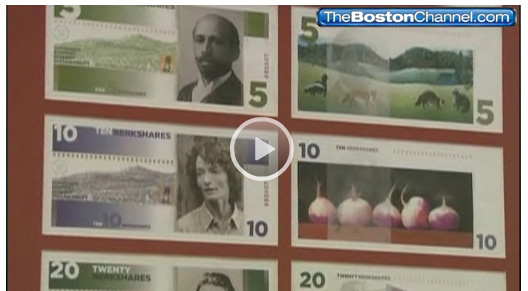
Berkshares — provided by WCBV TV Boston; BerkShares board member, Will Conklin, describes how when money is spent at local stores the multiplier effect on the local economy is much deeper and wider than money spent at chains or on the internet. The film visits Berkshire Bank and Tom’s Toys to explore the topic.

Elisabet Sahtouris Part 2 – Elisabet
Sahtouris, evolution biologist, author of GAIA: The Human Journey from
Chaos to Cosmos, Continues the conversation with Hazel Henderson
discussing the planet as a living system as in the Gaia Theory: the
whole biosphere is one interactive living system of which humans are a
part.
One Degree Matters provided by the European Environment Agency; This video follows social and business leaders as they travel to Greenland and experience for themselves the dramatic effects of the melting of the ice cap and consider how to use business to grow a green economy. The film brings to the screen the latest science from the Arctic and shows why a further rise in global temperature of one degree matters for the future of humankind.
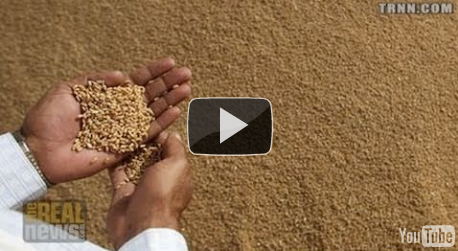
Speculation and Frenzy in Food Markets — provided by TheRealNews.com; Jayati Ghosh, professor of economics at JNU university in New Delhi and executive secretary of International Development Economics Associates, and Robert Pollin, professor of economics and codirector of the Political Economic Research Institute, PERI, discuss an avoidable crisis.

In this program, Hazel Henderson discusses with Linda Crompton, MA, MBA, pioneering Canadian bank president and mutual fund innovator, what reforms still are needed in capital markets. They review the challenges and progress over the past decades as ethical, green investing began to go mainstream which now in the USA alone comprises $6.57 trillion or 18% of total investments. Future expansion is expected as accounting reforms expose real risks such as water shortages and climate change excluded in traditional financial models

Elisabet Sahtouris Part 1 – Elisabet Sahtouris, evolution biologist, author of GAIA: The Human Journey from Chaos to Cosmos, and Hazel Henderson discuss the planet as a living system as in the Gaia Theory: the whole biosphere is one interactive living system of which humans are a part.
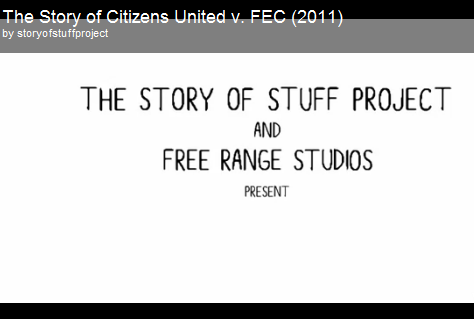
The Story of Citizens United v. FEC — provided by StoryofStuff.org; Annie Leonard brings her unique insight to the world of corporate influence on American politics.
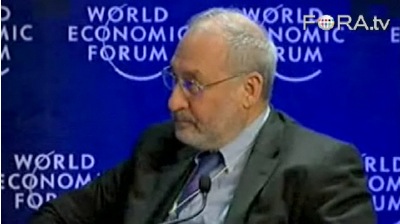
Joseph Stiglitz – Rebooting the Global Economy provided by FORA.tv; presentation by Nobel laureate Joseph Stiglitz at the World Economic Forum, Davos 2009.

Peter Russell Part 2 – Hazel
Henderson and U.K. physicist Peter Russell, author of The White Hole in
Time, continue discussing future trends in human consciousness and how
these will transform human societies.

Generation WE: The Movement Begins Provided by www.gen-we.org; By 2016 Millennials will be the largest voting block. They won’t stay home for their next election – in fact they are getting ready NOW. They have good reason too – and – they think they can make a difference.

In this program, Hazel Henderson discusses with Dr. William Abare, President, Flagler College, how education is changing. They explore the growing challenges to education: costs rising faster than inflation; students bearing $1.2 trillion in loans while facing disruptive technological changes and job markets shifting globally. Traditional colleges are challenged by massive open online courses (MOOCs) such as Khan Academy, backed by Bill Gates, and other start-ups now funded by Silicon Valley capitalists, with millions of students learning free online. How can the benefits of campus-based education be extended to include more student and help counter growing inequality?

Move Your Money provided by MoveYourMoney.info; introduces the compelling movement to move individual bank accounts from the “too big to fail” institutions into community banks and credit unions

In this program, Hazel Henderson discusses with Linda Crompton, MA, MBA, pioneering Canadian bank president and mutual fund innovator, what reforms still are needed in capital markets. They review the challenges and progress over the past decades as ethical, green investing began to go mainstream which now in the USA alone comprises $6.57 trillion or 18% of total investments. Future expansion is expected as accounting reforms expose real risks such as water shortages and climate change excluded in traditional financial models.

Peter Russell Part 1 – Hazel Henderson and U.K. physicist Peter Russell, author of The White Hole in Time, discuss future trends in human consciousness and how these will transform human societies.
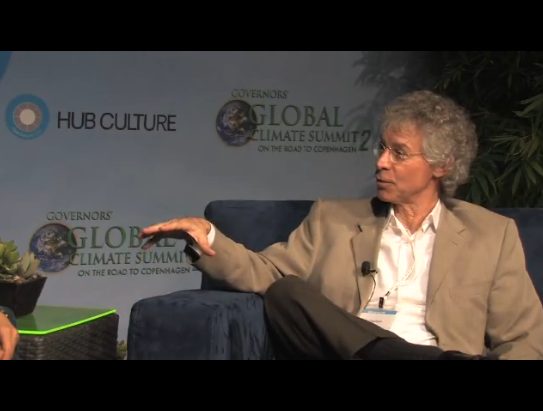
Jim Garrison on State of the World Forum provided by and State of the World Forum; Garrison speaking at the Governors’ Global Climate Summit 2, October 2009, about the role countries like Brazil can play as leaders in transitioning to a green economy.

In this program, Hazel Henderson discusses with Dr. William Abare, President, Flagler College, how education is changing. They explore the growing challenges to education: costs rising faster than inflation; students bearing $1.2 trillion in loans while facing disruptive technological changes and job markets shifting globally. Traditional colleges are challenged by massive open online courses (MOOCs) such as Khan Academy, backed by Bill Gates, and other start-ups now funded by Silicon Valley capitalists, with millions of students learning free online. How can the benefits of campus-based education be extended to include more student and help counter growing inequality?
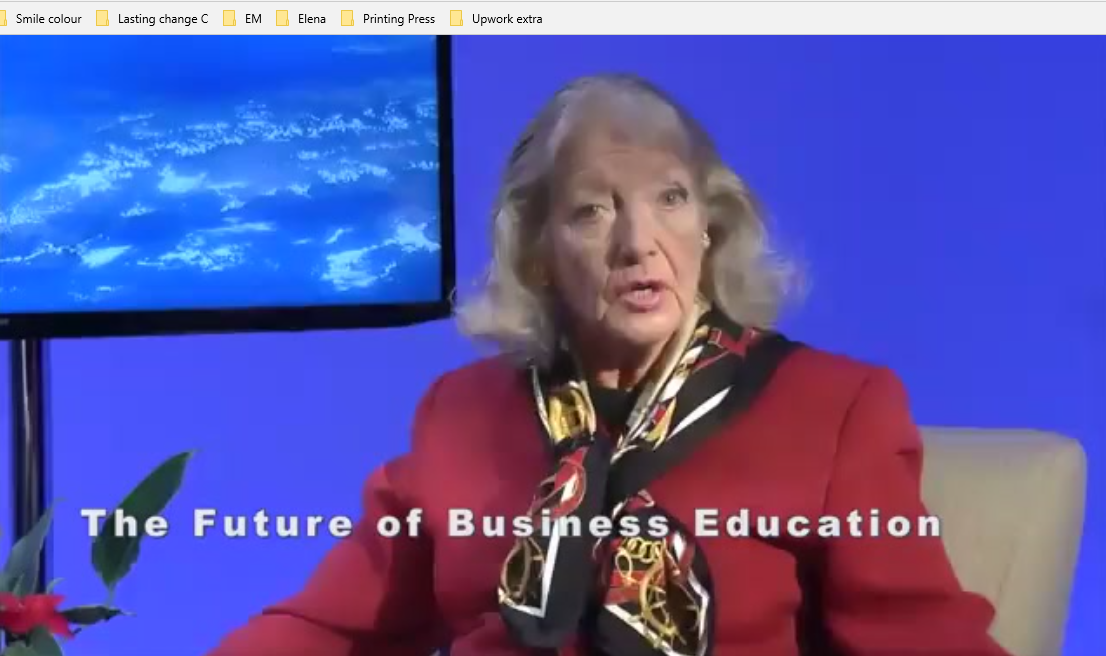
In this program, Hazel Henderson explores innovative courses with Dr. Allison Roberts, Chair of the Business Administration Department, Flagler College. They critique the values underlying much traditional business education which still teach with obsolete textbooks and assumptions that self-interest competition is “human nature”. Old courses still assume the impacts of business activities harming others and their environmental costs can be “externalized” from company balance sheets. Dr. Roberts, whose doctorate is in health and labor economics, has designed a more scientific curriculum, taking account of social and technological changes that have changed the global economy. Dr. Roberts teaches broader analyses and strategies for business success and new scorecards so that her students can prosper in the 21st century while contributing to more sustainable societies

 Naturally Successful (excepts) – provided by Natural Logic and Arnold Creek Video; A new type of entrepreneur is changing industries and the world. Making a profit is essential, but success includes social, environmental and economic impacts. The film features interviews with business leaders who offer insights on building values-driven businesses, seizing opportunities in new and existing markets, and embracing a new type of capitalism. (2.5 mins)
Naturally Successful (excepts) – provided by Natural Logic and Arnold Creek Video; A new type of entrepreneur is changing industries and the world. Making a profit is essential, but success includes social, environmental and economic impacts. The film features interviews with business leaders who offer insights on building values-driven businesses, seizing opportunities in new and existing markets, and embracing a new type of capitalism. (2.5 mins)
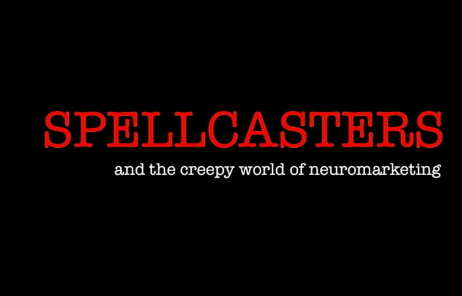
Spellcasters provided by the World Business Academy; A project of the EthicMark®, founded by Hazel Henderson, this video reveals how corporations and political candidates are using MRIs, EEGs, and other brain-scan technology to craft irresistible media messages designed to shift buying habits, political beliefs, and voting patterns. Individuals can sign the petion or companies take the pledge against neuromarketing at www.worldbusiness.org.
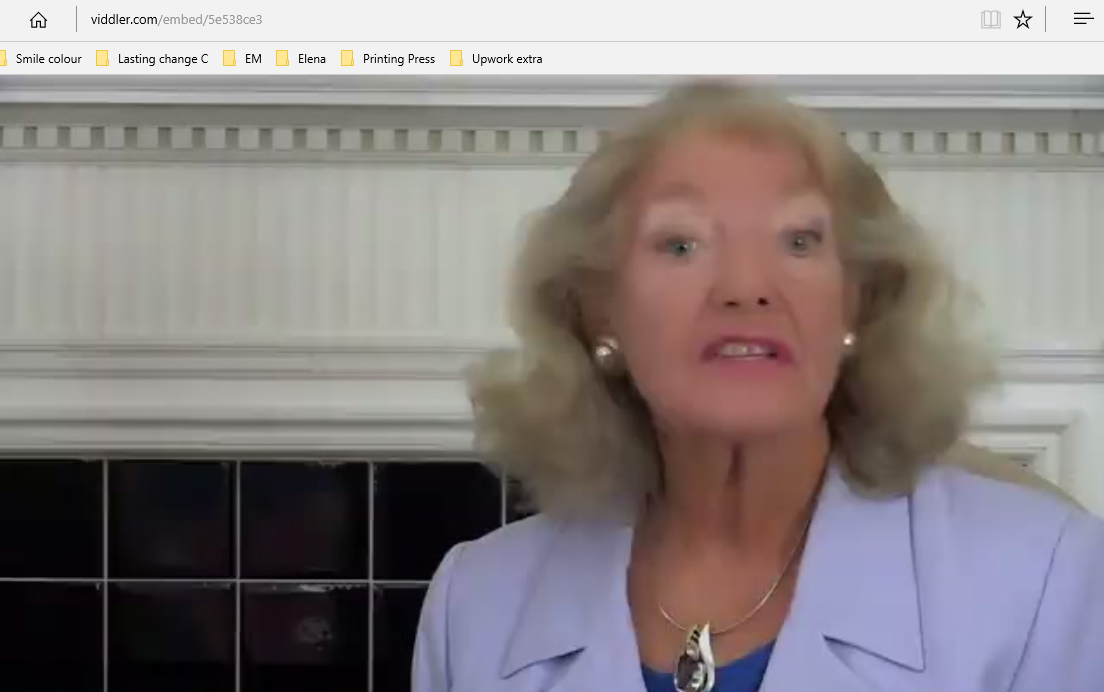
– In this program, Hazel Henderson discusses with Linda Crompton, MA, MBA, pioneering Canadian bank president and mutual fund innovator, how business courses need to catch up with changes in today’s finance and business. They review the urgent need to reform curricula at business schools in North America and Europe. Many still are teaching from obsolete textbooks with faulty assumptions that still permit companies, financiers and governments to “externalize” the social and environmental impacts from their balance sheets and pass on the costs to taxpayers, citizens and the environment.
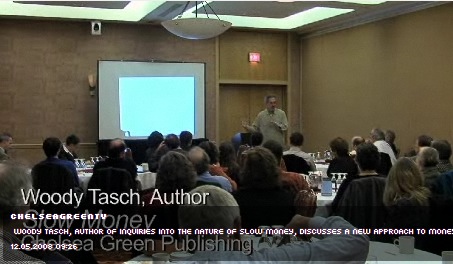
Woody Tasch On Slow Money provided by Chelsea Green Publishing; Woody Tasch, author of Inquiries into the Nature of Slow Money, discusses a new approach to money. Tasch is the chairman and CEO of Investors’ Circle–a network of angel investors, professional venture capitalists, foundations, family offices and others who are using private capital to promote the transition to a sustainable economy.
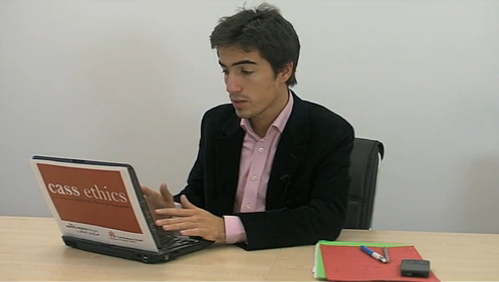
Humanitarian Competition — provided by Cass Ethics; In the seventh edition of Cass Ethics, Lisa Cowan, European correspondent for Ethical Markets and Cass EMBA alumni, introduces the Humanitarian Competition framework. For the Cass Ethics Series, every other week, Edouard Larpin, BSc Business Studies, will ask an academic or a specialist practitioner their point of view on applying ethics to business. To view all the video in the 2010-11 series please go here.

In this program, Hazel Henderson and Asian Markets Sustainability Analyst Matthew McGarvey, both China experts, review the new challenges China poses to Western economies as well as from other emerging economies in Asia. Western economists misunderstand the restructuring in China from exports toward domestic goals and shifting from polluting coal to wind, solar and the “circular economy” and their “Green GDP.” The new Asian Infrastructure Investment Bank (AIIG) led by China has attracted members like Britain and other European countries, as well as the IMF. Yet, the US Congress refused to join and is now out in the cold. The rush to new mega-trade deals in Asia and the need for new rules and metrics are explored.
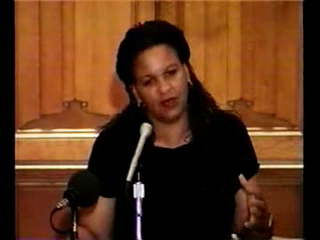
 Catherine Sneed: the Green Project – provided by the Schumacher Society, Cathrine Sneed’s work shows that bringing people out of jails and off the streets into the garden can be transformative in both the human and natural realms. (7 min) provided by Global Footprint Network, How many Earths would it take to support your lifestyle? The Global Footprint Network is pleased to announce a new video and Footprint Calculator for the U.S., two tools to help Americans see how their living habits relate to their use of the planet’s resources.
Catherine Sneed: the Green Project – provided by the Schumacher Society, Cathrine Sneed’s work shows that bringing people out of jails and off the streets into the garden can be transformative in both the human and natural realms. (7 min) provided by Global Footprint Network, How many Earths would it take to support your lifestyle? The Global Footprint Network is pleased to announce a new video and Footprint Calculator for the U.S., two tools to help Americans see how their living habits relate to their use of the planet’s resources.

In this program, Hazel Henderson and Asian Markets Sustainability Analyst Matthew McGarvey, who has lived in China, Vietnam and regularly visits Asia, discuss trends toward new values beyond Western GDP-measured economic growth. Asian economics’ models tend toward the Chinese view that “markets are good servants but bad masters.” Government rule-setting and oversight are favored and often authoritarian. Matt McGarvey recounts his personal journey from growing up in America’s heartland to learning Chinese and working in Beijing, and his experiences in Vietnam and other Asian countries.

In this program, Hazel Henderson and NASA Chief Scientist Dennis Bushnell discuss the new alarms raised by Bill Gates, Google’s Eric Schmidt, Space-Ex and Tesla’s founder Elon Musk and physicist Stephen Hawking that intelligent machines like IBM’s Watson may soon outsmart humans. These computer pioneers believe this could pose existential danger to human civilization – because they may not share human values and may cause us great harm. Bushnell cites all the areas where computers are already smarter and more efficient than humans: in law, medicine, accounting and will be needed in NASA’s space program. Henderson worries about the societal impacts as ever more sectors of modern economies are digitized, now displacing white collar jobs beyond earlier manufacturing automation since the 1960s. While futurists envisioned “leisure societies,” shorter work weeks, guaranteed basic incomes and flowering of culture, art and human potentials – what we got was unemployment, stagnant wages and longer work hours.
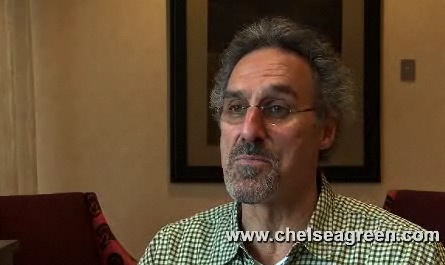
TV Set on Petrocollapse provided by TV Set and Blip.tv; discusses peak oil scenarios with oil-industry analyst Jan Lundberg and other peak oilers and community activists. January 2009.

In this program, Hazel Henderson and NASA Chief Scientist Dennis Bushnell explore the advance of automation as ever more sectors of industrial societies are digitized: from manufacturing to retailing, accounting, healthcare, education, legal services and even finance. Driverless vehicles will end jobs in trucking, taxis, which offer millions of entry-level opportunities. Fly-by-wire airplanes have caused the deskilling of pilots, some of whom have been confused when computerized navigation systems have failed – causing crashes. Can computerized systems be programmed with human values: empathy, compassion and ethics? Can a driverless car pass an ethical test of judgment: swerving to avoid hitting a group of people at the expense of colliding with a single person? Bushnell points out how much more efficient computers are at many tasks than humans. Henderson looks at the macro-effects: how can economies maintain aggregate demand to buy all the new productivity’s goods and services? How can people obtain purchasing power if not from jobs? They discuss alternatives emerging: worker-owned companies, cooperative enterprises and guaranteed basic incomes now enacted in Brazil, Mexico and proposed in Switzerland, Europe and the USA.
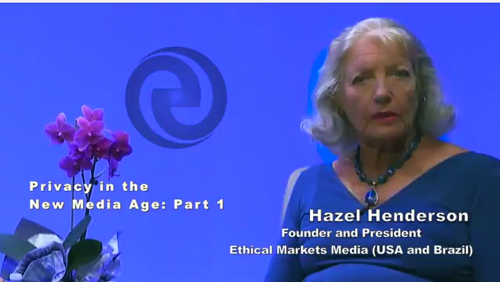
– In this program, Hazel Henderson explores with law professor Jon L. Mills, former speaker in Florida’s House of Representatives, his current book, Privacy in the New Media Age. The Internet, social media, blogs, “citizen-journalists” and global news distribution pose thorny issues in all countries. While the USA favors free speech over individual rights to privacy, European countries are protecting people’s “right to be left alone” and the deletion of old records of individual behavior which may jeopardize their future employment. While Facebook and Twitter facilitated the grassroots protests and rebellions of the “Arab Spring,” these social media also helped police to track down the dissidents and their prosecution. Prof. Mills points out that technological innovations always outrun the pace of law and public responses. Different rules apply in many countries and global agreements may take decades.

Obama’s Challenge: Making Change without Money provided by Edgar Cahn and Chris Gray, Sally Goerner, Gwendolyn Hallsmith, and Bernard Lietaer; discusses local level change using complementary currencies to create and retain jobs, produce housing, provide health care and elder care, and reduce emissions driving climate change. “We don’t need lots of federal funding and major policy change – we just need to mobilize using old-fashioned community organizing skills.”
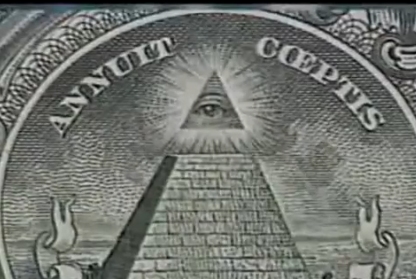
Ripping off the Public Provided by Brasscheck.tv; In his own words: in the first segment, Jim Kramer preaches free enterprise and paints a rosy picture of stock trading for amateurs. In the second, he instructs hedge funds on the fine points of how to sway the public by creating false signals in the market.

– In this program, Hazel Henderson continues discussing with Professor Jon L. Mills his current book, Privacy in the New Media Age. The conversation focuses on the USA and how the Constitution favors free speech and press in the First Amendment over individual rights to privacy. Mills cites many examples of how individuals are harmed in today’s social media, by false statements by bloggers, ubiquitous cameras in public places, tracking individuals’ movements via their cellphones and GPS. They explore data-collecting by government and by corporations selling users’ personal data to advertisers, as well as snooping by drones. Again, these new technologies and media have outrun the law and public awareness and in some cases even dubious rulings by the Supreme Court.
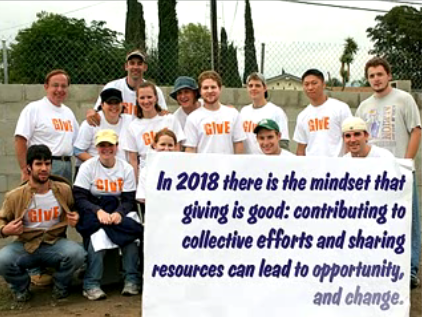
The Grassroots Economy in 2018 provided by P2P Foundation; What our economy could look like over the next decade, a change from economies of scale to economies of groups. It values collaboration more than negotiation, and bottom-up rather than top-down processes.

 Hans Rosling – Debunking third-world myths with the best stats you’ve ever seen Provided byTED.com; With the drama and urgency of a sportscaster, statistics guru Hans Rosling demonstrates that most of the third world is on a trajectory toward health and prosperity, and many countries are moving twice as fast as the west did. (20 mins)
Hans Rosling – Debunking third-world myths with the best stats you’ve ever seen Provided byTED.com; With the drama and urgency of a sportscaster, statistics guru Hans Rosling demonstrates that most of the third world is on a trajectory toward health and prosperity, and many countries are moving twice as fast as the west did. (20 mins)
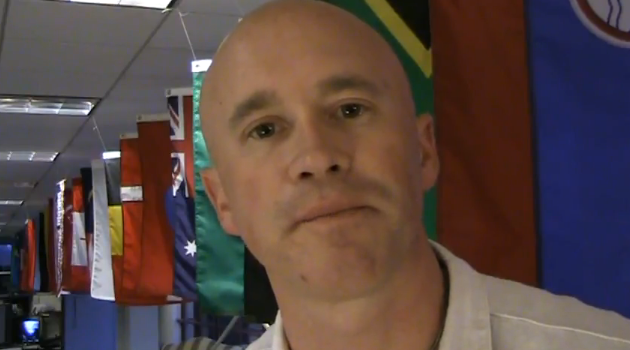
Global Innovations Commons provided by M-CAM; Introducing the GLOBAL INNOVATION COMMONS, founded by Dr. David E. Martin, Executive Chairman, M-CAM; Fellow, The Batten Institute, University of Virginia.

In this program Hazel Henderson discusses with John Englander, geologist and oceans expert, author of Rising Tide on Main Street, the steady rise of global oceans due to global atmospheric levels of carbon dioxide and other greenhouse gases. The Earth’s temperature continues rising as fossil fuels are burned, oceans absorb additional CO2, glaciers and ice sheets at the planet’s poles are melting. Englander studies coastlines and show visual evidence of the effects on the World’s 20 most vulnerable cities: Boston, New York, Washington DC, Seattle, San Diego, as well as Shanghai, London, Bangkok and low-lying countries Holland, the Philippines and many small island sates. In some areas, land is also sinking, and in others tectonic plates cause the land under, for example Los Angeles, to rise. Since 2015, 195 countries have agreed to address these largely human-caused effects with transition management strategies: investments in adaptation, sea walls, more and higher levees, relocation of humans settlements and shifting to renewable energy. Timeframes for action are reviewed. Transition management begins with realistic views of global change. Ethical Markets Transforming Finance Series, @2015
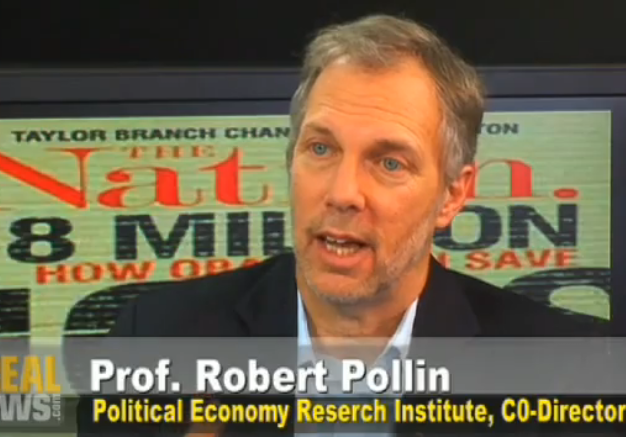
How to Create 18 Million Jobs provided by The Real News Network; Robert Pollin explains that reaching 4% unemployment by 2012 is possible.

In this program, Hazel Henderson discusses with John Englander, geologist and oceans expert, author of Rising Tide on Main Street, all the sensible, realistic ways that humans can practice transition management: by mitigating and adapting to rising sea levels. The world’s oceans will continue their steady rise – even if fossil fuel burning were to cease immediately. The long-term processes set in motion by rising global temperatures, melting glaciers and polar ice sheets are altering risk-analyses models in finance, insurance and business. Transition management strategies and options are discussed, from changing real estate values; building codes; reinforcing urban infrastructure; siting of essential transport and communications networks, as well as how investments will be affected and where new opportunities lie in shifting beyond fossil fuels to low-carbon, cleaner green economies. Ethical Markets Transforming Finance Series, @2015
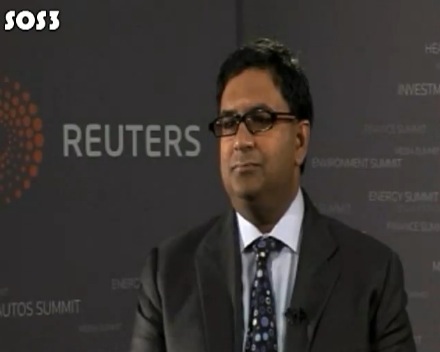
US Dollar as World Reserve Currency in Jeopardy provided by Reuters; Currency specialist Avinash Persaud, a member of a UN panel of experts, told the Reuters Funds Summit in Luxembourg that the panel may recommend that the world ditch the dollar as its reserve currency in favor of a shared basket of currencies, adding to pressure on the dollar. The proposal is to create something like the old Ecu, or European currency unit, that was a hard-traded, weighted basket.
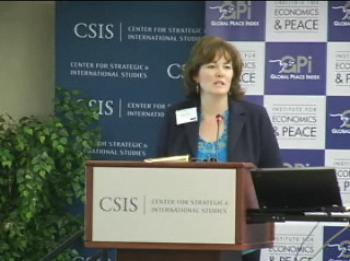
Global Peace Index — provided by CSIS.org; Center for Strategic and International Studies leaders explain this innovative initiative of The Institute for Economics and Peace

In this program, Hazel Henderson discusses transition management strategies and the likely next stage of capitalism with Terry Mollner, author of Common Good Capitalism: It’s Next! and board member of Ben and Jerry’s ice cream, now owned by global food giant Unilever. Terry describes the saga of this negotiation with Ben and Jerry’s shareholders, their effort to remain independent and how their social mission was recognized and began to change Unilever. Terry points to the current wave of mega-mergers in our global economy, where brands in food, air travel, communications and many other sectors end up cooperating as duopolies. In this world beyond competition companies can reach a new level: changing their goals and business models so as to place top priority on cooperatively serving the common good with competitive profit-seeking taking second place. How to square this with anti-trust conventions will be key. These startling views will be hotly debated as human populations and economies learn transition management strategies as tools to develop further on our small finite planet. Ethical Markets Transforming Finance Series, @2015
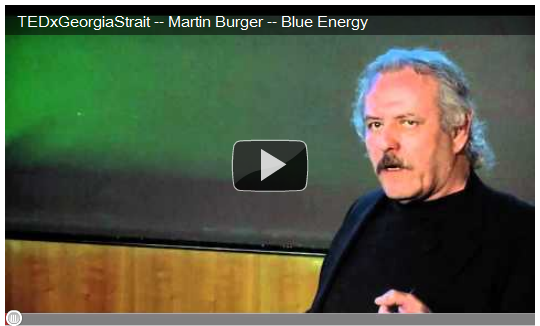
Blue Energy — provided by TEDxTalks; Martin Burger discusses how we must cooperate “in a consciousness congruence, the compounded mulitplier cosmological effect of each our choosing” to reach desireable futures, drawing on resources such as Hazel Henderson’s Attention Economy.

In this program, Hazel Henderson with Terry Mollner, author of Common Good Capitalism: It’s Next! examine his hopeful view of transition management. Mollner explains how capitalism can evolve from today’s global completion for resources and markets and the toll this takes on our societies and planetary ecosystems. Competition and human creativity have brought us to this stage. Both agree on today’s wider perception, scientific discoveries, new communications tools, satellites observing our effects on the Earth which make it evident that cooperation must now be the framework for all our actions. This is in line with Charles Darwin’s view that humanity’s success in evolving for millennia is based on our genius for cooperating. Nature’s transition management is driven by adaptation to environmental stresses. Darwin’s conviction saw our further development would lead to more altruism as we recognize our inter-dependence on each other and all lifeforms on our planetary home. Ethical Markets Transforming Finance Series, @2015

In this program, Hazel Henderson discusses a range of global challenges and transition management strategies with Frank Dixon (Harvard MBA), former head of global research with the famed, pioneering social auditing firm Innovest. They discuss the ways in which global geopolitics is evolving in response to the systemic changes to our planet’s ecosystems due to human activities. As water shortages, drought, floods and climate disruption effect more countries and populations, decision-makers in business government and civic society are seeing that all these problems are inter-linked. Frank Dixon’s book, Global System Change, maps these global issues and connects the dots. At the same time, Henderson points to the same new awareness by over 190 member countries of the United Nations in their 2015 agreement on the 17 issues addressed in their Sustainable Development Goals (SDGs). There is now evidence that humans are accepting responsibility for the changes created by unsustainable industrial development and moving toward integrated policies. These realistic approaches to transition management can lead to cleaner, healthier, more equitable societies on which our survival may depend. Ethical Markets Transforming Finance Series, @2015

James Robertson – It’s Our Money Anyway provided by The Renegade Economist; James Robertson talks frankly about democratising our money supply. Money as debt is not sustainable. www.renegadeeconomist.com
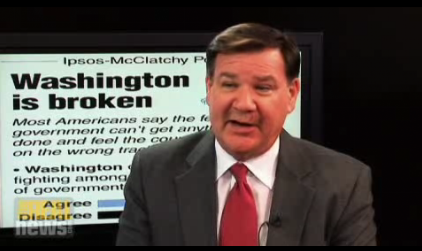
How to Create 18 Million Jobs Part 2 — provided by The Real News Network; Robert Pollin explains that reaching 4% unemployment by 2012 is possible but “normal” or “natural” pace might push that date to 2018.

In this program, Hazel Henderson discusses with Frank Dixon, MBA, author of Global System Change, the massive transition now underway to innovate and build societies powered by renewable energy and resources. All are based on more cooperative sharing models. This transition management is driven by new paradigms beyond traditional economics which are multi-disciplinary. They are based on new understanding of human behavior and the integrated science of Earth systems with information from 120 orbiting observation satellites. They discuss how all this new knowledge is seeping into financial models and steering investments in more sustainable production and ways of organizing human settlements and regenerating ecosystems. All these new transition management methods require redefining growth and prosperity and reshaping our political systems, mass media and lifestyles. These changes ae underway at every level from individuals and communities to nations, corporations and international organizations. Ethical Markets Transforming Finance Series, @2015
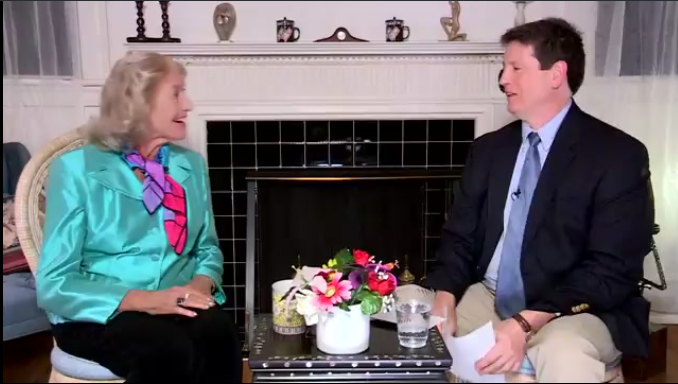
In this program, Hazel Henderson explores with Frank Dixon, MBA, author of Global System Change, the damaging effects of the global gem mining industry, now a case study in transition management. This industry has been the focus of many NGO critics since diamond mining is not only dangerous and polluting, but has helped fuel armed conflicts in many African countries. Several UN resolutions have addressed the need to stop the flow of these “blood diamonds” and the global diamond cartel has responded with the Kimberley Certification which only certifies their diamonds are “conflict-free”. This ignores the much larger problems of miners’ injuries, deaths, low wages and the pollution of water supplies and air in mining areas and communities. Beyond these hazards is the fact that this gem mining industry is now obsolete and unnecessary, since science now produces identical gems in laboratories in many countries without human and environmental damage. Thus Dixon examines Ethical Markets transition management tool: its global standard, EthicMark® GEMS which certifies only gems not mined from the Earth. Dixon asks Henderson how this better standard was developed and how it can challenge this obsolete mining industry by this market-based transition to reform: EthicMark® GEMS can create a healthier new industry and many thousands of new jobs while saving lives, human misery and the environment – an illustration of positive transition management. Ethical Markets Transforming Finance Series, @2015
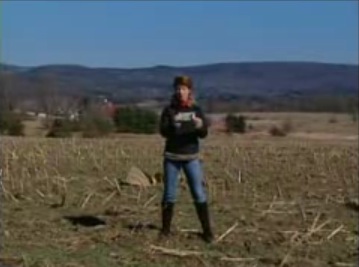
BerkShares Local Currency on BBC provided by the E.F. Schumacher Society and the BBC; BerkShares local currency supports the community, economy, ecology, and sustainability of the southern Berkshire region of Massachusetts. Launched by the E. F. Schumacher Society, BerkShares create consumer awareness about the consequences of spending practices, supports local businesses, facilitates the development of import replacing industries, and serves as a model for other regions.

In this program, Hazel Henderson discusses with Marcello Palazzi, MBA, president of the Progressio Foundation in Holland, their experiences in developing these new standards for transition management: corporate social performance and auditing over the past 30 years. Palazzi recounts his path in business and how he came to realize that standards for environmental, social responsibility were rising as the effects of corporate activities disrupted communities and ecosystems. Henderson’s experiences came from a civic organization she co-founded, Citizens for Clean Air, in the USA and how this led to her lifelong work as a science policy advisor in Washington and with the Calvert Social Investment Fund. Both had focused on aspects of transition management, developing new accounting models and metrics. These are now globally accepted by such organizations as the International Integrated Reporting Council (IIRC), the Global Reporting Initiative (GRI) and the Sustainable Accounting Standards Board (SASB). Ethical Markets Transforming Finance Series, @2015
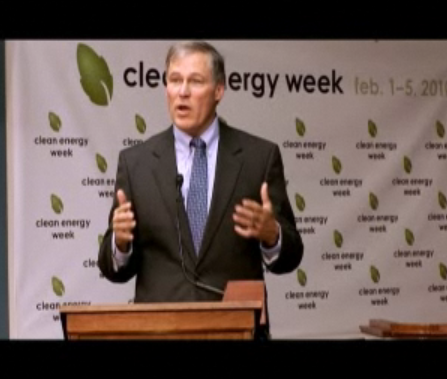
Congressman Jay Inslee provided by ChoosingGreen.com; Cong. Jay Inslee opens Clean Energy Week , Feb. 1-5, 2010.
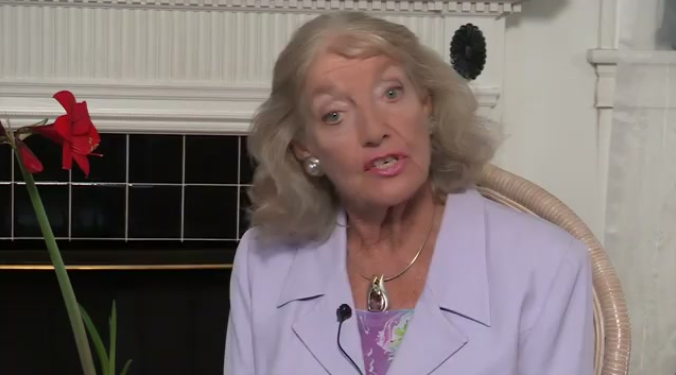
In this program, Hazel Henderson discusses with Marcello Palazzi, MBA, president of the Progressio Foundation in Holland, his latest work in transition management by promoting the new business charter: the Benefit Corporation, which certifies companies which focus beyond profitability to service and benefit society. This new model is now legally chartered in 30 states in the USA, also in Latin America and Europe. The founders of Certified B Corporations Jay Coen Gilbert, Andrew Kassoy and Bart Houlahan recently were awarded a coveted prized by the Aspen Institute. Palazzi and Henderson explore examples of B Corporations, which include Ethical Markets Media. This new socially responsible business model is enjoying rapid growth and includes several publicly traded corporations. These examples are further case studies in positive transition management. Ethical Markets Transforming Finance Series, @2015

In this program, Hazel Henderson discusses with award-winning civic leader Thais Corral, co-author of Leadership Is Global, the current crises and transitions occurring in her country Brazil. Brazil has all the resources and capital assets it needs to make the transition to sustainability, including human, social and intellectual capital with advanced infrastructure and industries, and the planet’s primary storehouse of natural capital. However, Brazil’s active democracy needs to shake off the obsolete fossil-fueled industrial model still imposed by foreign investors and traditional financial models. Thais Corral points to Brazil’s rich civic society traditions, participatory politics, its optimistic people and their open flexibility in embracing change as their best resource in transition management. This civic genius is the “software” that may prove to be Brazil’s unique export to the world and its struggle for domestic reforms offer lessons for other countries. Ethical Markets Transforming Finance Series, @2015

 Alisa Miller – Why we know less than ever about the world Provided by TED.com; Alisa Miller, head of Public Radio International, talks about why — though we want to know more about the world than ever — the US media is actually showing less. Eye-opening stats and graphs. (4.5 mins)
Alisa Miller – Why we know less than ever about the world Provided by TED.com; Alisa Miller, head of Public Radio International, talks about why — though we want to know more about the world than ever — the US media is actually showing less. Eye-opening stats and graphs. (4.5 mins)
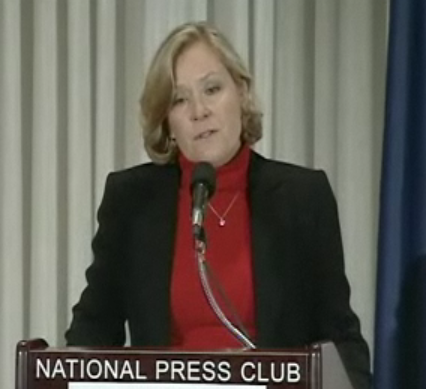
Clean Energy Week Press Conference — provided by ChoosingGreen.com; presented at the National Press Club in DC, Feb. 1, 2010.

In this program, Hazel Henderson explores with award-winning civic leader, recognized in Brazil by the UN, Thais Corral, co-author of Leadership Is Global, her personal story. Thais and her family came to Brazil from Spain, bringing their entrepreneurial skills and creativity. Thais, a lifelong learner, spent years studying in Italy, other European countries, and the USA at the University of Chicago and Harvard. She innovated 400 radio programs broadcasted to empower women across Brazil and became a co-founder of the global Women’s Environment Development Organization (WEDO) with US Congresswoman Bella Abzug. Thais then founded the learning and leadership programs at Sinal do Vale, a large estate 30 minutes from Rio De Janeiro’s mains airport, where participants learn all the tools of transition management first hand. Ethical Markets is partnering with Thais in this new educational program since Thais is a member of our global Advisory Board. Ethical Markets Transforming Finance Series, @2015

 Van Jones – Green For All Provided by CNN; Van Jones comments on the Leiberman-Warner Climate Security Act and its implications for providing sustainable green jobs. (3 mins)
Van Jones – Green For All Provided by CNN; Van Jones comments on the Leiberman-Warner Climate Security Act and its implications for providing sustainable green jobs. (3 mins)


Steady State Economy provided by CASSE; Students at the USC Film School created an innovative 2-minute animation to promote CASSE – the Center for the Advancement of the Steady State Economy.

Gasland Trailer — provided by Democracy for America; The Academy Award nominated ‘Gasland’ reveals dangerous natural gas drilling and bane of hydraulic fracturing.

In this program, Hazel Henderson interviews her longtime associate Alice Tepper-Marlin, president-emeritus of SAI International and key founder of the pioneering transition management example: the socially responsible investment movement. They reminisce on the evolution of this form of accounting which screened portfolios and companies for their ethical, social and environmental performance. Tepper-Marlin founded the pioneer group, the Council on Economic Priorities (CFP) in the 1960s and Henderson became a board member, along with famed economist Robert Heilbroner, author of The Worldly Philosophers (1999). Tepper-Marlin recounts the first study by CEP of pollution in 24 pulp and paper companies and how the companies stalled at first but eventually provided data. CEP’s consumer guide, Shopping for a Better World, sold over 1 million copies and catapulted CEP into creating this new branch of accounting and securities analysis – and Tepper-Marlin into widespread media recognition. Another successful model of positive transition management! Ethical Markets Transforming Finance Series, @2015
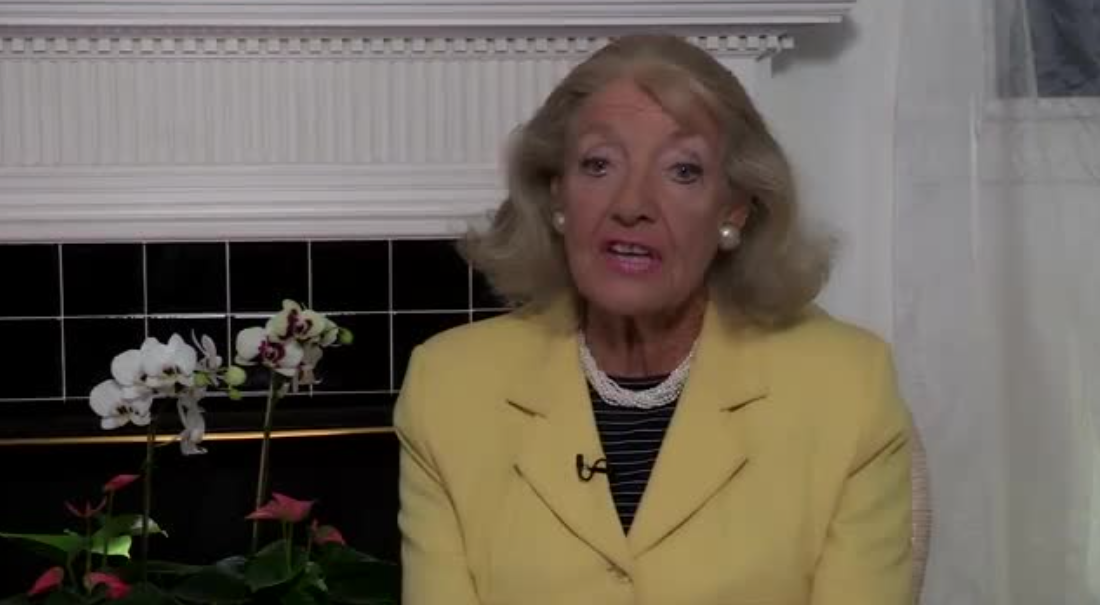
In this program, Hazel Henderson discusses with Alice Tepper-Marlin, president-emeritus of SAI International and founder of 10-Squared, the future of accounting for ethical, social and environmental performance of portfolios, companies and governments. This important tool of transition management is full-spectrum accounting, a multi-disciplinary method. This goes beyond the earlier money-based models evaluating life-cycle costs and recognizing 6 kinds of capital: financial, built facilities, intellectual, social, human and natural capital. These broader metrics are now promulgated globally by the International Integrated Reporting Council (IIRC) and the Global Reporting Initiative (GRI) and in the USA by Sustainable Accounting Standards Board (SASB), chaired by Michael Bloomberg. At last, the obsolete models in traditional economics permitting social and environmental costs to be “externalized” is exposed as irresponsible. Tepper-Marlin describes her latest venture 10-Squared, another transition management innovation and management tool for companies to achieve better social and environmental performance goals. Ethical Markets Transforming Finance Series, @2015
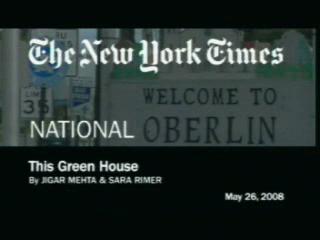
 This Green House – provided by The New York Times; Spend a day at the SEED (Student Experiment in Ecological Design) house with the environmentally conscious students from Oberlin College. (6 min)
This Green House – provided by The New York Times; Spend a day at the SEED (Student Experiment in Ecological Design) house with the environmentally conscious students from Oberlin College. (6 min)
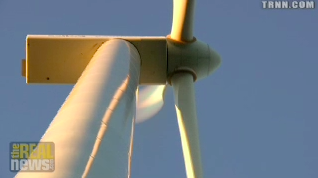
Carbon Caps – Who Gets the Cash? provided by TheREalNews.com; James Boyce of PERI – The Political Economy Research Institute and professor at University of Massachusetts, Amherst, discusses the different models of carbon cap legislation and how they serve different interests. Feb. 8, 2010.
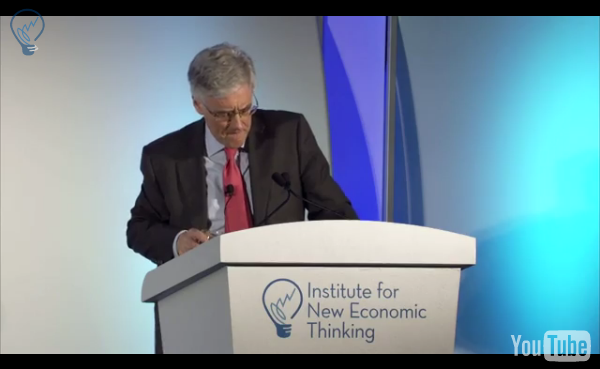
Adair Turner on GDP — provided by INET; Britain’s Lord Adair Turner, head of their Fiancial Services Authority on what’s wrong with gdp!
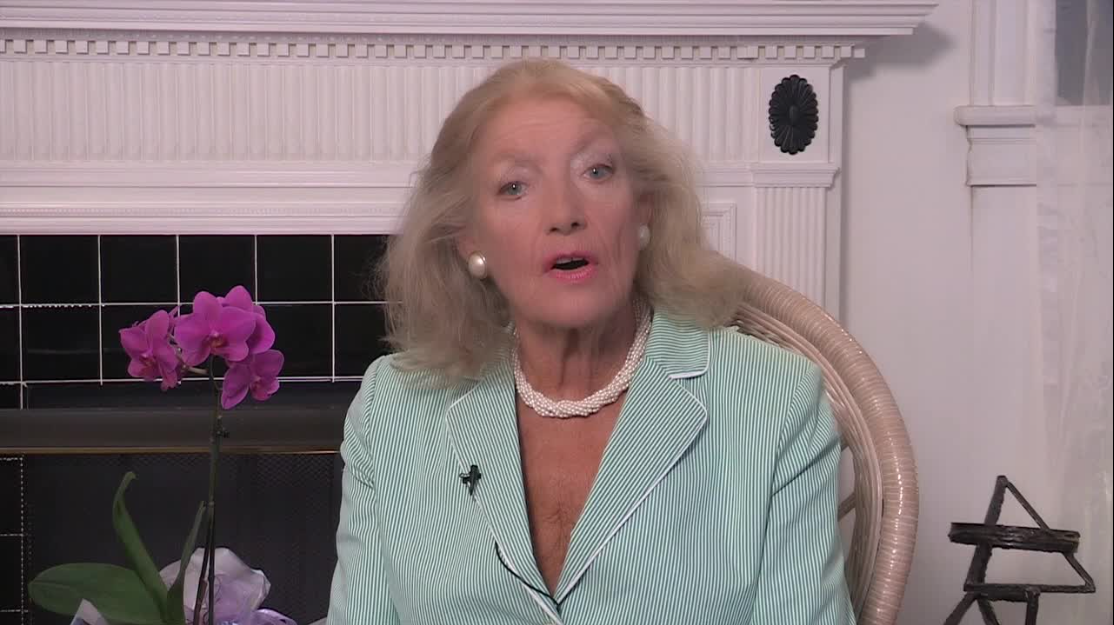
Hazel Henderson discusses the evolution of the ethical, responsible, green investment movement with British pioneer investor Tessa Tennant. Tennant founded the first green UK mutual fund as well as the Social Investment Forum. She reviews the early obstacles, as she founded ASRIA, the first such group in Asia. An inspiring personal story! © 2016 Ethical Markets
Responsible Investors
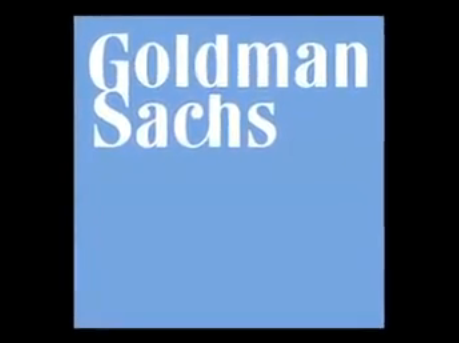
Goldman Sucks – provided by Lebed.biz; a visualization of Matt Taibbi’s “The Great American Bubble Machine”

Hazel Henderson and UK investment pioneer Tessa Tennant look at the new consensus emerging in 2015 for the global transition from fossil fuels to clean, green, sustainable economies. Tennant serves on the British Green Investment Bank. Now that 195 countries have signed on to the United Nations Sustainable Development Goals (SDGs) and the COP21 Climate Accords, this transition is accelerating worldwide. © 2016 Ethical Markets
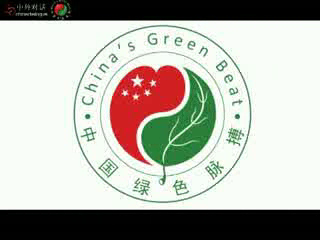
 China’s Green Beat: Kumning No Car Day – provided by chinadialogue and China’s Green Beat; Green Sisters Jenny and Ouyang show the positive difference on the streets on the monthly No Car Day in Kumning. (5 min).
China’s Green Beat: Kumning No Car Day – provided by chinadialogue and China’s Green Beat; Green Sisters Jenny and Ouyang show the positive difference on the streets on the monthly No Car Day in Kumning. (5 min).
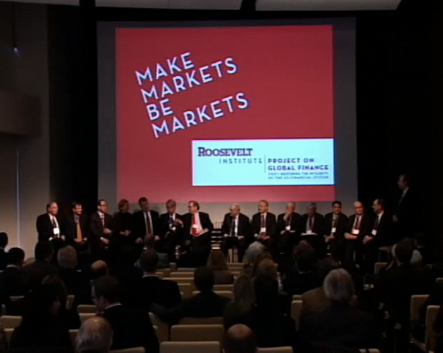
Make Markets Be Markets — provided by the Roosevelt Institute: “The best advice on Reforming Finance yet from inside The Economics Box.” – Hazel Henderson, Editor. This portion of the video shows a roundtable of speakers such as Elizabeth Warren, Joseph Stiglitz and George Soros. The full report and entire video available at www.makemarketsbemarkets.org.
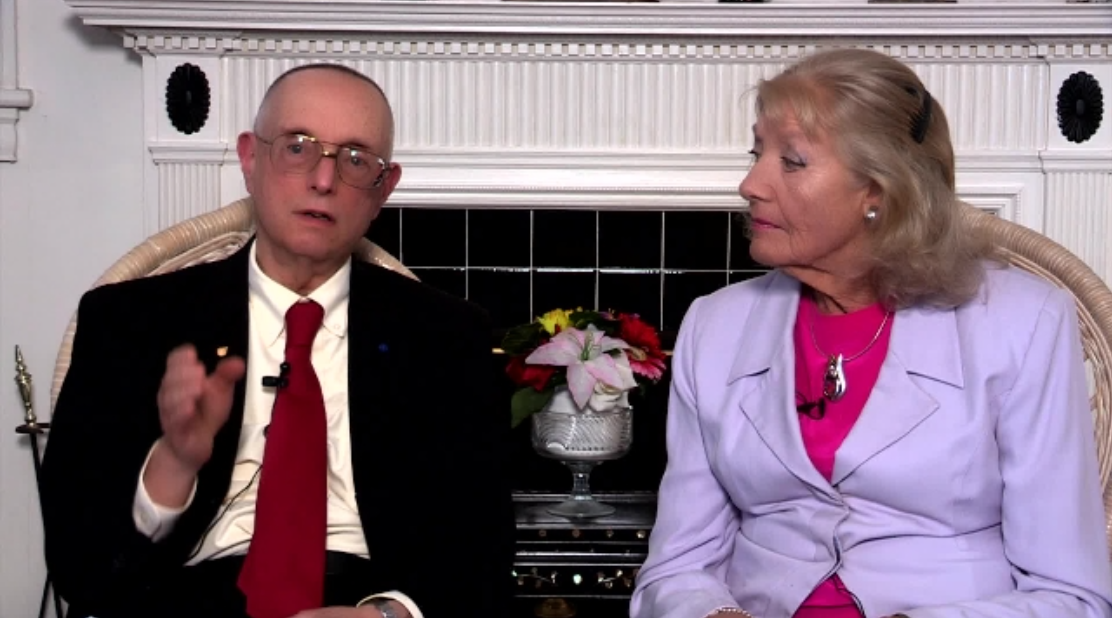
In this program, Hazel Henderson and NASA Chief Scientist Dennis Bushnell explore all the current issues swirling around the Internet, now the de facto “infostructure” undergirding our global economy — just as rails and roads were the infrastructure of previous centuries.
They discuss key questions, now that the Internet hosts businesses, finance, social media, news and “fake news “empowering individuals, innovation, entrepreneurs, as well as cybercriminals, jihadis, cryptocurrencies, money laundering, with software and malware that can damage physical power plants! As Internet governance changes, is it robust enough for all the new bandwidth users, from video to the so-called “internet of things. All in this fast-paced discussion.
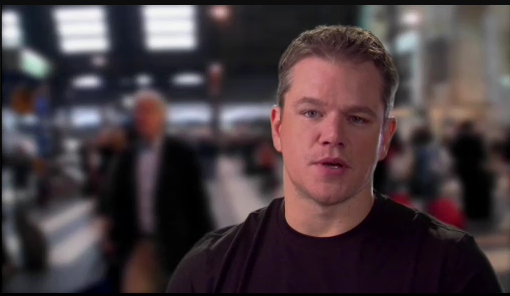
Plan B: Mobilizing to Save Civilization — provided by Earth Policy Institute; Lester Brown, with narration by Matt Damon, provides a glimpse into a new and emerging economy based upon renewable resources, originally aired on PBS. Ask your local station to air this important documentary!
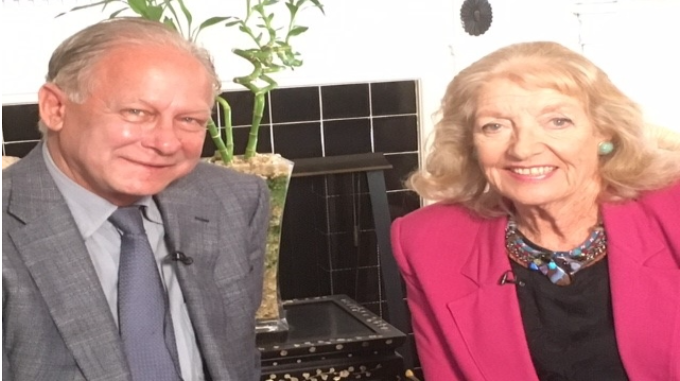
In this program, Hazel Henderson and Wayne Silby, lawyer and founder of the Calvert Group of socially responsible mutual funds discuss where these investing trends Silby pioneered , are heading. They discuss how these trends evolved , as both were colleagues at Calvert from its launch in 1982 , when Henderson served on Calvert’s Advisory Council with other experts , helping develop Calvert’s social screens . These screens helped steer portfolios away from companies with poor records on pollution, mistreatment of employees, alcohol, tobacco, weapons makers toward the cleaner, greener ethical portfolios of many hundreds of similar funds today. Both agree that these investment vehicles, whether still called “ triple bottom lineâ€, SRI, ESG , ethical, or “green†are now mainstream, with their value-based metrics offered by Morgan Stanley’s MSCI group. . These funds are now often re-branded more broadly as “ impact investing “ seen as more acceptable , and are now offered by mainstream firms from Blackrock and Goldman Sachs to Bank of America . Other terms include “ sustainable “ , all widening the market for these funds. Thus, the issue going forward is to monitor these mainstream funds , their values , mission statements and portfolio choices and performance to avoid “ greenwashing “ !
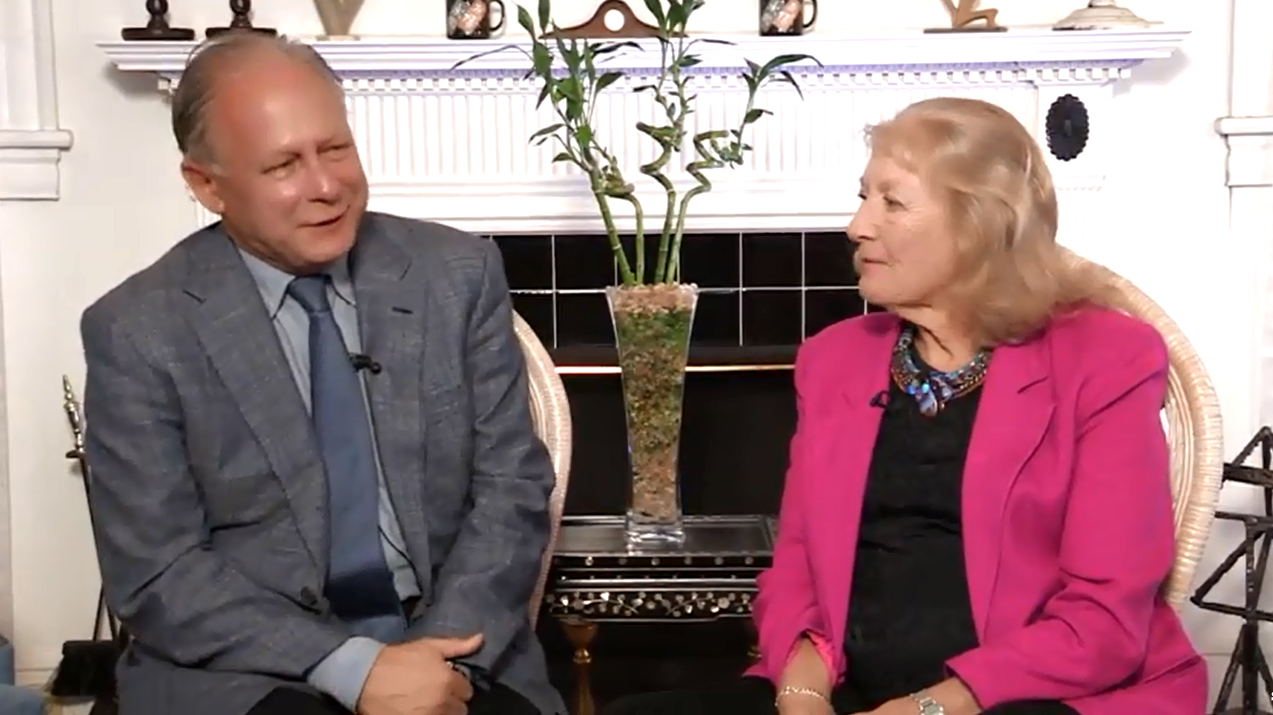
In this program, Hazel Henderson invites her longtime colleague Wayne Silby , founder of the Calvert Group of socially-responsible mutual funds, to share his personal story . Wayne reminisces on how he became involved in pioneering ethical investing . He describes his personal evolution from a successful currency fund manager , to questioning what he really wanted on his tombstone ! After founding Calvert in 1982 and steering the fund for decades , Wayne launched his Syntao company in Beijing China , foreseeing today’s China, now the second largest economy in the world , which is set to overtake the USA in the next decade due to its vast population and rapid innovation. Syntao brings Wayne’s investing model to China , now in many cities there , with 60 Chinese employees. Wayne now divides his time between homes in Washington, DC and Beijing . He still chairs the Calvert Foundation and a new donor-advised philanthropic fund , ImpactInvest — and has no plans to slow down anytime soon !

 THE FLOW STATE by Prof. Csikszentmihalyi – Provided by TED.com; Prof. Mihaly Csikszentmihalyi is a member of our Advisory Board and for the Calvert-Henderson Quality of Life Indicators. Hazel Henderson was one of his “flow state” examples.
THE FLOW STATE by Prof. Csikszentmihalyi – Provided by TED.com; Prof. Mihaly Csikszentmihalyi is a member of our Advisory Board and for the Calvert-Henderson Quality of Life Indicators. Hazel Henderson was one of his “flow state” examples.
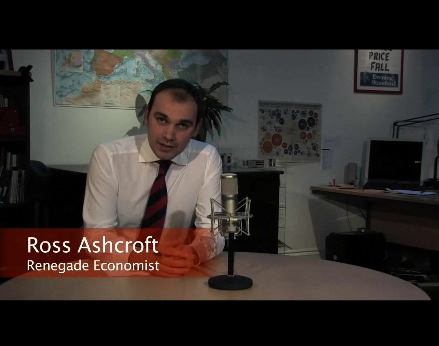
Michael Hudson with the Renegade Economist provided by The Renegade Economist; The Renegade Economist caught up with former Wall Street consultant Dr. Michael Hudson. He talks explicitly about the solutions, which would rescue the global economy and create a sustainable financial system. www.renegadeeconomist.com’
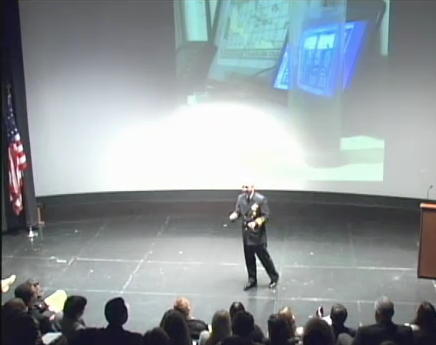
Partying on a Trace of CO2 — provided by TEDxPentagon; Rear Admiral David Titley, USN, explains climate change and link to national security
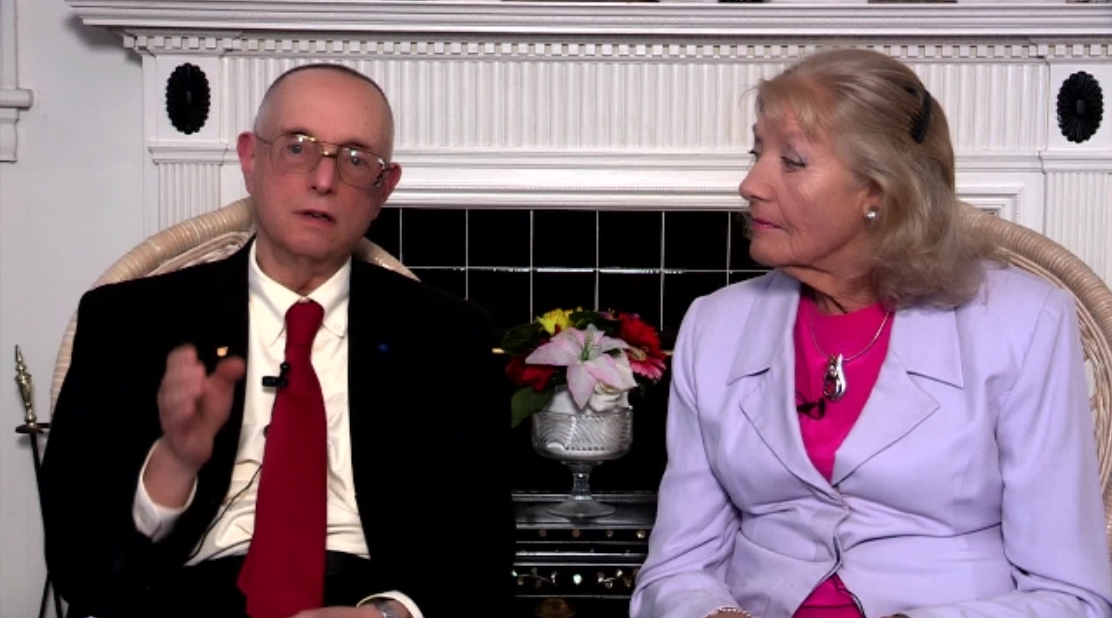
In this program, Hazel Henderson and NASA Chief Scientist Dennis Bushnell review all the issues around the increasing global shift from polluting fossil fuels and their effect on climate to economies. They discuss today’s harvesting of solar, wind, geothermal, hydro and oceans, as well as the cost savings from more efficient buildings, batteries electric vehicles and charging stations, smarter cities and urban design, public transport and the future of decentralized energy, especially in developing countries. Both Henderson and Bushnell agree that there is ample renewable energy from our Sun for all existing and foreseen human societies’ needs. The issues concern the politics of incumbent interests and the re-design of green infrastructure so as to utilize and scale up all our existing renewable technologies now available, as tracked in the Green Transition Scoreboard ®.
 Reforming Global Finance –Videos showing solutions to the global economic crisis that break from the old paradigms and offer a different relationship to money, banking, debt, currency and our measure of wealth.
Reforming Global Finance –Videos showing solutions to the global economic crisis that break from the old paradigms and offer a different relationship to money, banking, debt, currency and our measure of wealth.

Technology: Servant or Master? – Hazel Henderson in conversation with Oscar Motomura, president of Brasil’s premier management institute the Amana Key, along with Dee Hock, author of “The Birth of the Chaordic Age” and founder of VISA International.
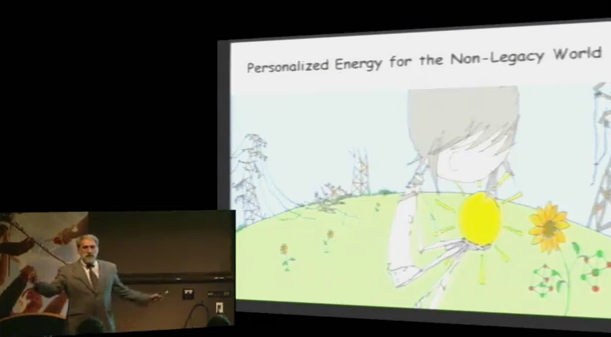
Personalized Energy for the Non-legacy World — provided by Harvey Mudd College; Daniel Nocera of MIT offers sustainable energy options, explaining the basics of energy conversion in biology and chemistry with primary focus on the photogeneration of hydrogen and oxygen from water.

East Meets West – Hazel Henderson and her long-time friends Alvin Toffler & Ziauddin Sardar discuss the divergent worldviews between Western science, technology and economics and the worldviews of Islam.
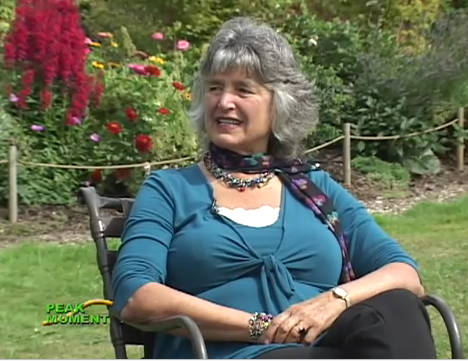
Conversation with Vicki Robin — provided by Peak Moment; Published 20 years ago, Your Money or Your Life was written for these times, asserts co-author Vicki Robin. People examine their assumptions about money, decide what is “Enough,” get out of debt, and free up life energy to invest in what matters most to them. Vicki discusses applying these same tools to relationships with our time, opportunities for creativity and exchange, building community, and her ten-mile food diet.
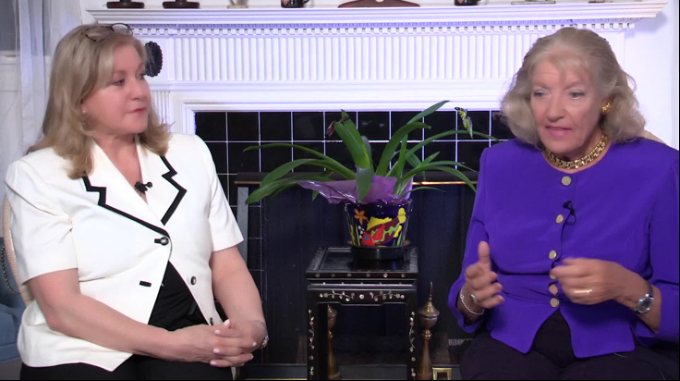
In this program Hazel Henderson explores with Linda Crompton MBA, CEO of Leadership Women-USA how women open up new opportunities and innovate in business finance and politics. They discuss both bad and good news on gender issues in many fields including opportunities to positively impact mass media content and advertising.
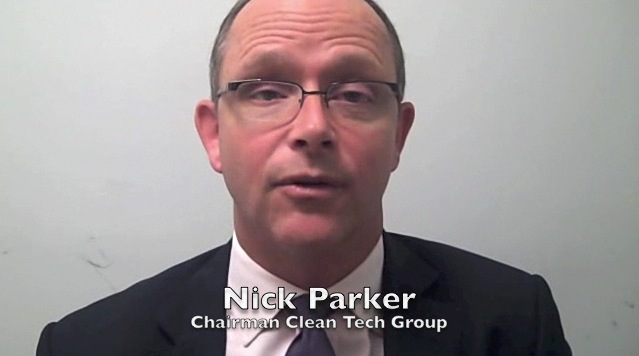
Wall Street Green Trading Summit 2009 provided by Ethical Markets; our reporter catches up with investment leaders and our own advisory board members attending this pivotal summit.

In this program Hazel Henderson and Linda Crompton MBA, CEO of Leadership Women-USA explore the new trends they see in globalization from the nativist popular movements in the USA and Europe led by autocratic politicians to the “Small Is Beautiful” grassroots globalist in the United Nations 195 countries who support their Sustainable Development Goals and climate accords of 2015.
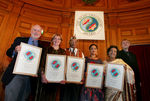
Alternative Nobel Prizes – Jakob Von Uexkull, pioneer founder of the “Right Livelihood Award,” called the Alternative Nobel Prize, explains why he founded the prize and how it successfully challenged the thinking of the Nobel Prize Committee.
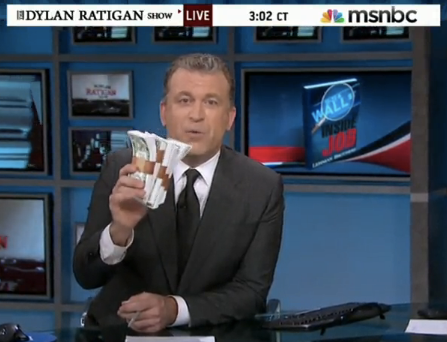
Dylan Ratigan reporting on Lehman Brothers – provided by MSNBC; Ratigan explains how repo transactions work and why Lehman Brothers might be criminal in their actions. Guest: Eliot Spitzer, former governer of New York
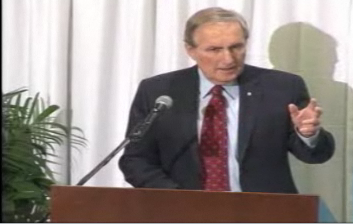
Canada Index of Wellbeing — provided by CIW; Keynote speech by The Honourable Roy J. Romanow, Chair, CIW Advisory Board.

With Teresa Radzinski, MBA
US Trust-Bank of America
In this program Hazel Henderson explores with Teresa Radzinski, MBA, Managing Director,
U. S.Trust-Bank of America Private Wealth Management, their special portfolios designed for ethical, responsible investors. These portfolio’s are geared to meet the values of investors who are concerned with social, environmental and governance issues, including gender equity, diversity, climate change and carbon-free goals. They discuss the 30 year evolution of these kinds of innovative portfolios now going mainstream under the new branding of “impact funds”. These are especially appealing to women and millennial investors.
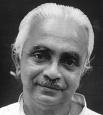
Economics As If People Mattered Part 2 – Dr. A.T. Ariyaratne continues his story of SARVODAYA which means “awakening of all” and the Buddhist philosophy of the Noble 8-Fold Path to Happiness.
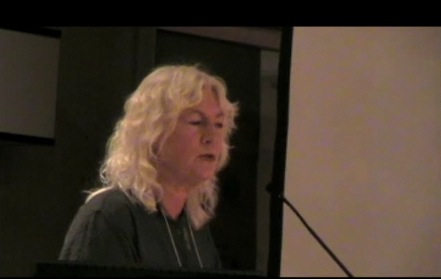
Selling-Out Debate at Investor’s Circle 2009 provided by Ethical Markets Media; Judy Wicks, Mark Albion and Pierre Ferrari tackle the big issues of scaling a mission-driven business at the Investor’s Circle Spring 2009 Conference in San Francisco.
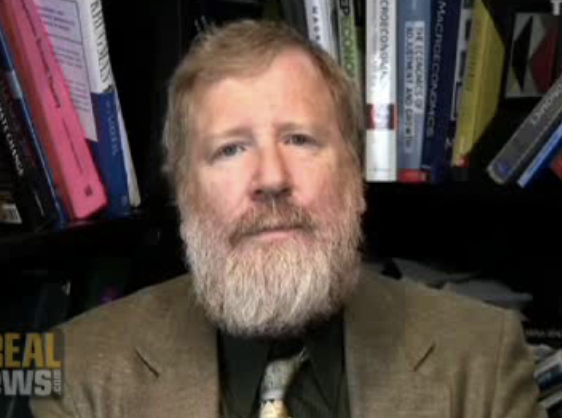
To Rob a Country, Own a Bank — provided by The RealNews Network; Part 3 of this ongoing series in which Prof. William K. Black, economics and law at Univ. of Missouri, describes the fraud in the banking system and the weak government response to protect consumers.

With Teresa Radzinski, MBA
U.S. Trust Bank-Bank of America
In this program, Hazel Henderson and Teresa Radzinski, MBA, Managing Director,
U. S. Trust-Bank of America Private Wealth Management share stories on how women became prominent in finance and business.
They discuss the challenges and opportunities women face and the recent studies that show women out-performing in portfolio management, leaders in ethical investing and how corporations lead by women often exceed benchmarks in performance and results. Teresa tells about her innovative clients who are courageous nuns speaking out and serving the poor, while taking charge of their own pension investments.

Economics As If People Mattered Part 1 – Dr. A.T. Ariyaratme describes to Hazel Henderson how his SARVODAYA movement in Sri Lanka, based on Buddhist principles, has improved lives in over 8,000 villages there.
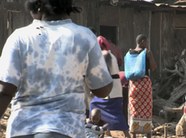
How fair trade can help people trade their way out of poverty – The startling truth about how fair trade can help people out of poverty in the slums of Nairobi Kenya. For more information on how you can invest with Shared Interest please visit www.shared-interest.com
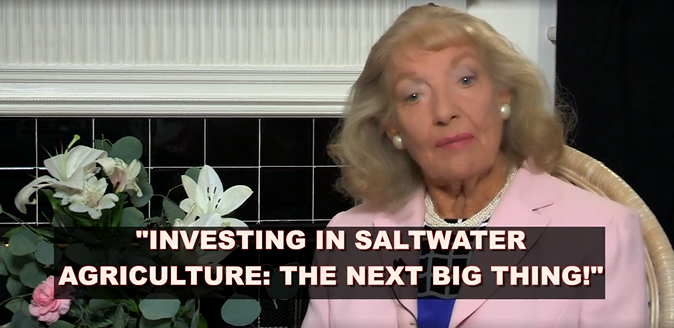
In this program, Hazel Henderson and NASA Chief Scientist Dennis Bushnell continue their exploration of the massive global potential in shifting over-investments in food and agriculture dependent on the planet’s 3% of freshwater to the other halt of the plant kingdom: the 10,000 salt-loving (halophyte) plants that can fill human food and fuel needs for the foreseeable future. These crops grown with saltwater: e.g. nutritious quinoa grains in health foods and tasty salt-tolerant rice in Chinese markets are grown in 22 countries. This can expand to feed growing populations, relieve pressure on freshwater and provide food and fuels from the Earth’s 40% of degraded and desert lands. Halophyte plants require no fertilizers or pesticides and capture CO2, all to help accelerate the global transition from fossil fuels to renewable resources, cleaner, knowledge-richer economies. Today, investors can capitalize on cheap unused land, cheap water, cheap plants and free sunshine! This is a paradigm problem and due to her-behavior of financial markets.
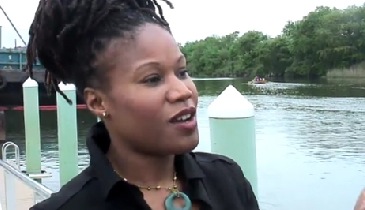
Greening the Ghetto with Majora Carter provided by The Soul of Green; Majora Carter describes her work bringing green development to minority communities.

In this program, Hazel Henderson explores with NASA Chief Scientist Dennis Bushnell the exploding use of social media and addictive behaviors of users leading to loss of privacy, autonomy and jobs. They discuss all these issues of psychographic targeting of groups using big, data and proprietary algorithms, which are sold to data brokers and advertisers. They review the new efforts to protect users and voters, such as the General Data Protection Regulation (GDPR) in Europe, attempting to curb the misuse of user’s private information with heavy fines. They look at the other problems including government surveillance and toxic content: hate speech, biased algorithms, terrorist recruiting sites, Russian trolling and its influence on US and European elections. Many proposals for how individuals can protect themselves are also discussed, even though this burden must also be shared by the corporations and government agencies as well.

The Possible Human – Dr. Jean Houston and Hazel Henderson speculate on the far reaches of human potential – how we can tap more of the mere 10% of our brains’ capacities that we use today.
Money Innovation Explores varied money systems such as complementary currencies and local currencies

In this program Hazel Henderson explores with Dr. Monica Sharma, author of Radical Transformational Leadership (2018) her personal story growing up in India. How she practiced medicine there and grew to understand the importance for human health of looking at her patients’ life circumstances and their environments. Dr. Sharma became a leader in many United Nations health initiatives and her leadership style can inspire and empower many others.

He And She Futures – James Robertson and Hazel Henderson discuss gender politics and how societies are changing as women move into partnership with men in all aspects of society.